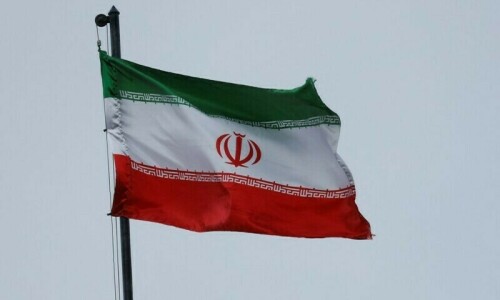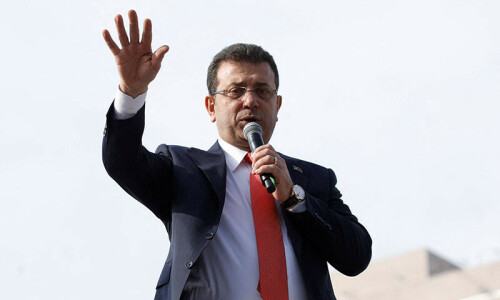Nawaz to raise issue of India's excessive use of force in held Kashmir during UN address
ISLAMABAD: Prime Minister Nawaz Sharif will raise the issue of India’s excessive use of force against civilians in Indian-held Kashmir (IHK) during the upcoming United Nations General Assembly (UNGA) session, it was reported on Friday.
"The prime minister has expressed grave concern during today's meeting over India's use of excessive force in occupied Kashmir," said a spokesperson from the Prime Minister House.
He added the issue will be raised during the UNGA session.
The issue of IHK and India's treatment of Kashmiris was at the forefront of discussions held during the meeting today for the upcoming UNGA session.
The Foreign Office, earlier this month, also invited the Indian Foreign Secretary to visit Islamabad for discussion on the Kashmir dispute and to find a fair and just solution as per United Nations Security Council resolutions.
Modi aggravates the problem
Indian prime minister, Narendra Modi, further fuelled Pakistan’s resentment when he said that people of Balochistan and Kashmir thanked him during his Independence Day speech this year.
“What kind of life is this, inspired by terrorism? What kind of government setup is it that is inspired by terrorism?” asked Modi, who delivered the open-air address amid a security lockdown in the Indian capital.
“The world will know about it and that's sufficient for me.”
Read: Indian PM under pressure over Kashmir violence
The Indian PM went further in his diatribe against Pakistan.
“People of Balochistan, Gilgit and PoK (Pakistan Occupied Kashmir) have thanked me a lot in past few days, I am grateful to them," said Modi in his Monday address.
Modi also said that Indians “also cried” when children in Peshawar were killed in the APS attack in December 2014.
“This is our nature, but look at the other side. They glorify terrorists.”
Uptick in violence
In the worst civilian violence to hit the restive region of Indian-held Kashmir since 2010, at least 70 Kashmiri civilians have been killed and thousands more injured in Indian-held Kashmir in clashes with security forces after the killing of a prominent Kashmiri separatist leader Burhan Wani, in a military operation on July 8.
Wani, a 22-year-old commander of Kashmir's largest pro-independence militant group Hizbul Mujahideen (HM), was killed along with two other separatists during a gun battle with Indian government forces. Indian paramilitary soldiers on patrol after a day long curfew in Srinagar. -AP
Wani joined the HM group at the age of just 15, and was viewed as a hero by many in Kashmir. The state's former chief minister Omar Abdullah tweeted after his death that he had become the “new icon of Kashmir's disaffected”.
Witnesses said tens of thousands attended his funeral despite a curfew imposed by Indian authorities, chanting independence slogans.
Indian government troops in IHK have reportedly fired live ammunition, and used pellet guns and tear gas to control anti-government protesters.
Indian Prime Minister Narendra Modi had called an emergency meeting to discuss escalating violence in India-held Kashmir amid anti-India protests.
Pakistan's Foreign Office has also condemned the violence in Indian-held Kashmir.
HM is one of several groups that for decades have been fighting around half a million Indian troops deployed in the region, calling for independence for Kashmir or a merger with Pakistan. Indian paramilitary soldiers patrol during curfew in Srinagar.
Kashmir has been divided between rivals India and Pakistan since 1947, but both claim the territory in its entirety.
Also read: Who removes Kashmir posts on Facebook?
Tens of thousands of people, mostly civilians, have died in the fighting since 1989.
Violence had sharply declined in recent years following a major crackdown by the hundreds of thousands of Indian forces deployed in the region.
But a recent uptick in militant attacks has galvanised frustrated young Kashmiris, majority of whom deeply resent the Indian military's presence.














































